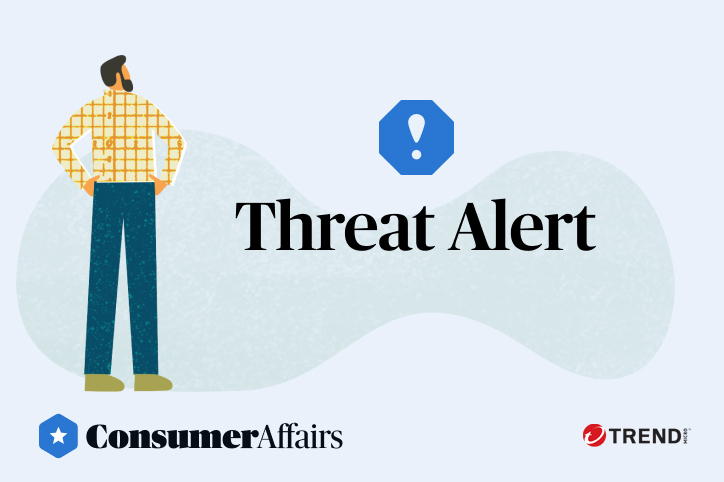[ad_1]
Scammers love to impersonate a well-known brand, particularly if it is in the financial services industry. Consumers are rightly concerned about their money and may respond without stopping to think.
In this week’s ConsumerAffairs-Trend Micro Threat Alert, researchers identified scammers impersonating the PayPal Business team, informing users that they will charge merchant fees from their accounts.
The scammers provide a phone number for the targeted victims to call, and if they do the victims are asked to reveal their financial credentials through the fake customer service hotline. Trend Micro detected 152 logs from September 14-19, suggesting this scam is gaining traction.
In another case, Trend Micro found scammers sending a fake notification letter in the name of PayPal, informing users their account has been removed. Victims were prompted to click an attached zip to get their accounts back.
The folder, however, contained a malicious attachment to gain access to the victim’s financial information. Jon Clay, vice president of Threat Intelligence at Trend Micro, says that version of the scam is also picking up speed.
Other financial institutions
“Recently, we’ve observed scams involving PayPal, Capital One, and even a nonexistent entity, Choice Financial Investment Bank,” Clay told ConsumerAffairs. “These scams may claim unpaid merchant fees, require identity verification, prompt acceptance of disputed payments, propose dispersion of payments owed, among other tactics—all aiming to acquire personal and financial information about the victim.
“Consumers should dismiss any messages from financial institutions with which they have no affiliations and should contact their existing banks directly rather than responding to such messages.”
In addition to the Capital One phishing scam, Trend Micro identified scammers impersonating Bank of America, informing victims that they have a $4.5 million payment that has been called back. The hackers say that if the customer wants to dispute the charge, they must provide financial credentials to verify their email.
Here are some other scams that have been victimizing consumers lately:
Survey Scam
-
Trend Micro’s research team identified hackers pretending to provide an 8K smart TV as a reward to invite customers to participate in a short survey so that the scammers could access the victim’s personal and credit card information.
-
The top five states being targeted are Texas, California, Illinois, Florida and Virginia.
As we’ve pointed out before, merchants will provide some reward for filling out a survey. However, it’s never anything as expensive as a TV set.
USPS Shipping Scam
-
Trend Micro’s research team identified hackers impersonating USPS to inform customers that their parcel delivery failed due to incomplete address information and asked victims to fill out personal and credit card information on fake USPS websites.
-
The top five states being targeted are Florida, Texas, California, Pennsylvania and Colorado.
Travel Scam
-
Between April 1-September 3, Trend Micro found 2,935 travel-related scam URLs, which increased by 8.38% compared to the past weeks. Trend Micro found two fake Booking.com pages.
-
The top five states being targeted are Oregon, Virginia, Washington, Pennsylvania and Illinois.
Frankly, we aren’t surprised by this one. The summer was a huge time for travel in the U.S., with lots of pent-up- demand after the pandemic. With competitive airfares for fall travel, travelers need to be especially careful because the bad guys are still at it.
[ad_2]
Source link
Author Profile
Latest Entries
 SportsSeptember 30, 2023Nevin seeks to build on her promise with Leicester City – FTBL | The home of football in Australia – The Women’s Game
SportsSeptember 30, 2023Nevin seeks to build on her promise with Leicester City – FTBL | The home of football in Australia – The Women’s Game Women's RightsSeptember 30, 2023Experts back decriminalization as the best means to enhance sex workers’ rights
Women's RightsSeptember 30, 2023Experts back decriminalization as the best means to enhance sex workers’ rights  World NewsSeptember 30, 2023What risks do China’s shadow banks pose to the economy? | Business and Economy
World NewsSeptember 30, 2023What risks do China’s shadow banks pose to the economy? | Business and Economy LifestyleSeptember 30, 2023Costco has begun selling gold bars
LifestyleSeptember 30, 2023Costco has begun selling gold bars



.jpeg)


